Fallout 4 is a strong reminder that most RPGs lack actual role-playing
Funny story: Most RPGs are a lie. I often forget this, as I potter around, slaying beasts, taking on side-quests - or mocking the pitiful plight of the peasants because I’m far too busy to deal with them until I get bored in the end-game - and selecting illusory dialogue options that let me be exactly who I want to be from a choice of four re-ordained options. But it’s true.
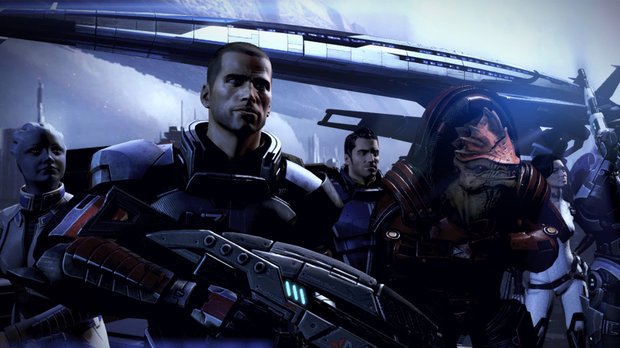
Because most RPGs, however grand, however sweeping, however beautifully constructed their worlds or seemingly malleable their NPC relationships, really don’t allow much role-playing at all. In fact they’re often more like open-world Choose Your Own Adventure books. They’re story-by-questionnaire, a series of prescribed, linear options, grouped in branching sequences to give the illusion of free will. The narrative equivalent of a customisable Subway sandwich. Multiple configurations and permutations of tasty pre-designated possibilities, but it’s never going to turn into French onion soup.
The key point in defining the level of role-playing in any experience is the question of who has the chief right of authorship. In most video game RPGs, that’s the developer, and I just create a collage by slightly rearranging the clippings of their chosen story. In a richer role-playing game, the primary authorship is mine.
As an example of how it can work, let me refer you to another means of video-free narrative gaming, with similar lineage to those beloved old multi-choice page-turners. Table-top role-playing. Not so much a game, more a collaborative storytelling exercise, a decidedly human GM takes the place of a computer on the world-building side, giving the players a completely fluid story to influence and be influenced by. With no scripting or code to limit what can happen, the game can accommodate anything the players choose to say or do.
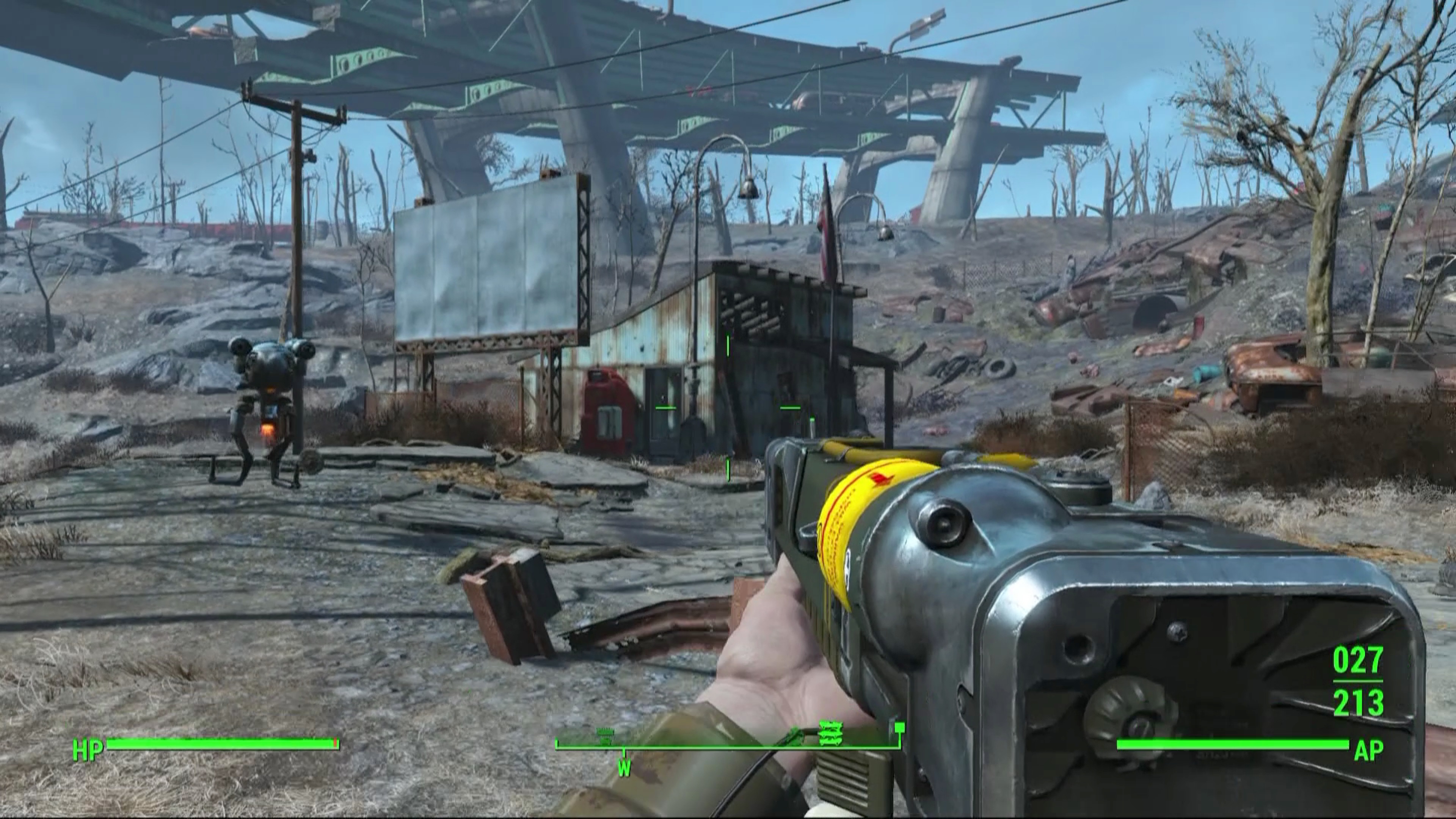
But how can video game RPGs possibly hope to emulate that, until we realise genuine AI, and manage to get a couple of quick, digital DnD campaigns in before the inevitable nuclear apocalypse? Well the thing is, they already can. But where table-top RPGs operate on a literary foundation, their form built of words, and dialogue, and descriptions, and conversations – both in-character and otherwise – with the GM, video games have to use a different kind of language. Interaction.
What Fallout 4 does very, very well is build a world that facilitates meaningful feedback to your moment-to-moment freedom of will, via a rewarding back and forth of (relatively) organic cause and effect.. At its best, it actually does a rather good impersonation of a human GM, but where GMs deliver the goods by being able to respond to player actions in specific, tailored ways, in Fallout 4, vagueness is the key tool.
The trick is to create a set of reactive systems – taking in environment, enemy and friendly AI, and random events – that respond not only to the player’s actions but to each other. Then you just take away restrictions and see what happens.
Weekly digests, tales from the communities you love, and more
I’ll wander through the wilderness. I’ll get attacked by a random beasty. I’ll retaliate with excessive force, detonating a radroach, but making a big enough noise to attract the attentions of something bigger and nastier. Probably a Yao Guai, knowing my luck. And the explosion will send debris flying toward a previously unnoticed Raider camp. I’ll hide, neither faction will see me, and the bear will fight the Raiders until they’re dead and it’s bleeding out. I’ll step out, finish the bear with a single shot, and as I’m looting the scattered Raider corpses, I’ll accidentally discover a new area and a brand new set of side-quests.
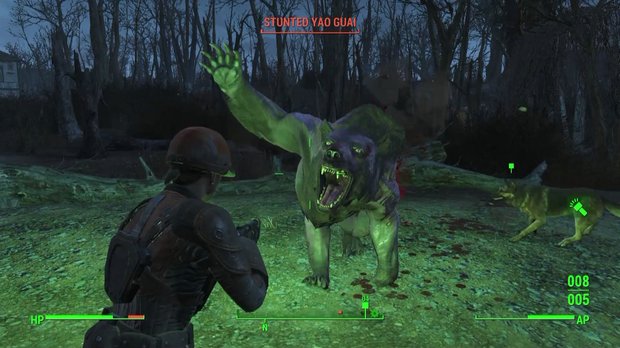
Suddenly you have a page upon which the player can write their own story through their own input, the game responding to those actions with spiralling, escalating events that make it feel like the player is having an effect not just upon the immediate situation or target, but upon the wider world. And all the time, the world is reciprocally feeding back to the player
That latter part of the equation is key to any sense of being part of a real story, and therefore fundamental to role-playing. Real stories are built of actions, and consequences, and reactions. They’re about layers of influence running through a world. And where a more restrained RPG will create that effect by ticking certain boxes when certain pre-canned decisions are made – say, playing a different cutscene if a particular dialogue option is chosen – a systems-based game like Fallout 4 will make it happen dynamically, for real, right in front of you.
The glorious thing about this – and the thing that makes it such a wonderful role-playing engine – is that by responding so robustly and entirely to the player’s behaviours, the game’s feedback accommodates (and therefore legitimises) any ‘head-canon’ the player may have for their character’s personality and behaviours. I might believe my Shepard to be a certain way due to various imagined thoughts and feelings, but as soon as the game’s script doesn’t provide for those? Vetoed.
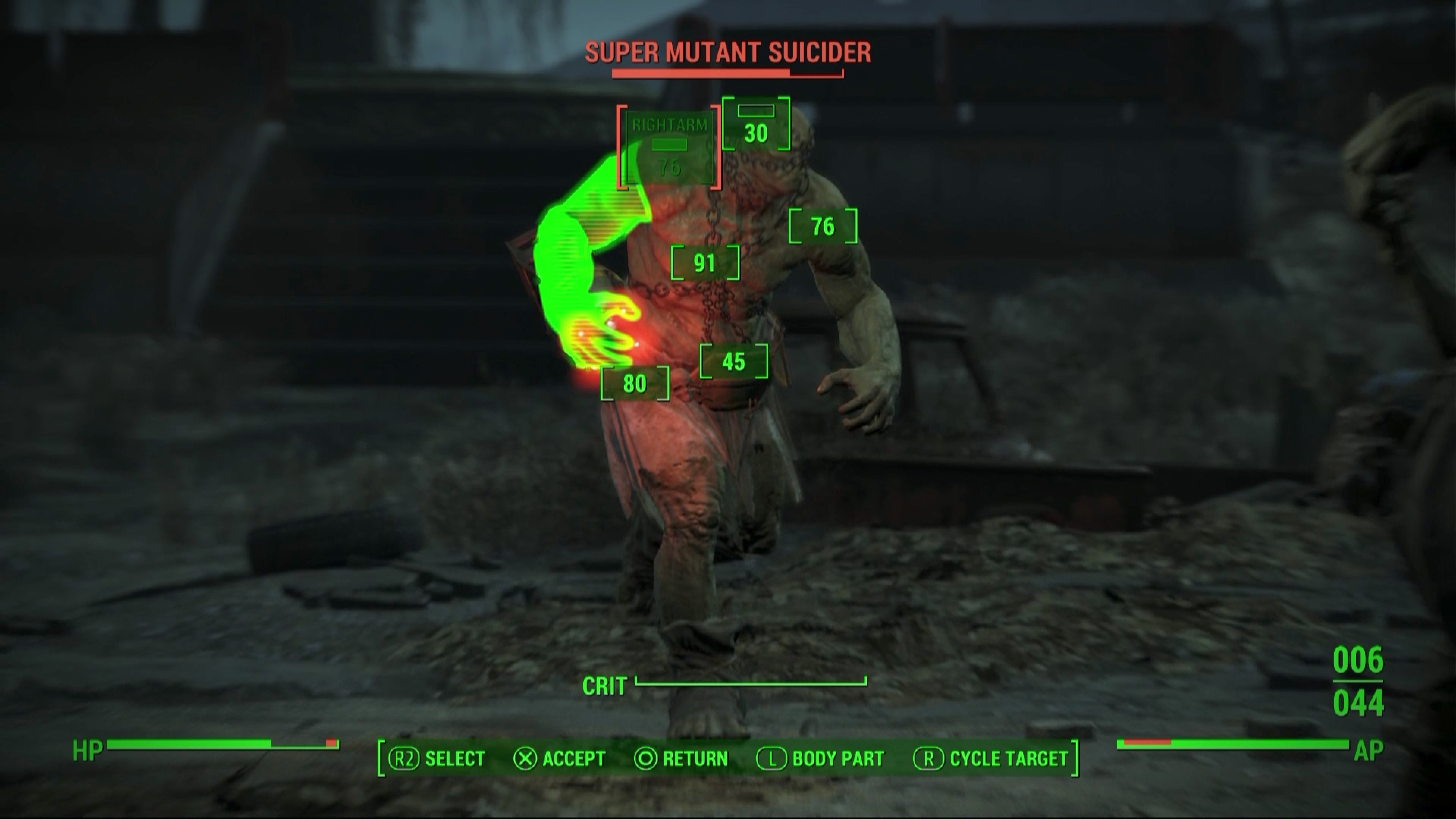
But by putting so damn much emphasis on its malleable action, Fallout 4 creates a fantastic illusion of both knowing and curating for my burnt-out, anti-authoritatian, anti-military, politically cynical ex-soldier who quit the forces because his high intelligence and charisma stats made him too outspoken for the nuke-mongering top brass to stomach. Whatever I do in-character, the game can respond accordingly, and that makes my characterisation part of the world, and therefore real. It’s no longer something that I just imagine. Even in its scripted dialogue, Fallout 4 generally keeps things vague enough that it rarely ever encroaches on what I think my character is thinking when he speaks.
Let’s say I’m just walking through a town in between formal missions. I pass a small Brotherhood of Steel squad, just patrolling the streets. And because my character is entirely distrustful of self-appointed authority figures (after his experience in the army, and the subsequent nuking of the world) and doesn’t really take this new world seriously, or yet particularly respect anyone in it (because it’s a ludicrous, alien theme-park of a place, which has done nothing for him but steal his son), their very presence rankles him. He’s walking past with gritted teeth, when one of them makes a snarky, self-aggrandising comment.
That’s too much.
He lets them pass to the opposite end of the road, then takes a pot-shot. They fight back, and my character finds himself outgunned. He puts up a stubborn fight out of sheer belligerence, but eventually has to scatter. Or perhaps he puts his gun down in an attempt to end things 'peacefully'. Either way, he’s slightly wrecked his relationship with his more placid companion, and that will need to be fixed later on. More pressing though, his ego is bruised, and he hates the Brotherhood even more.
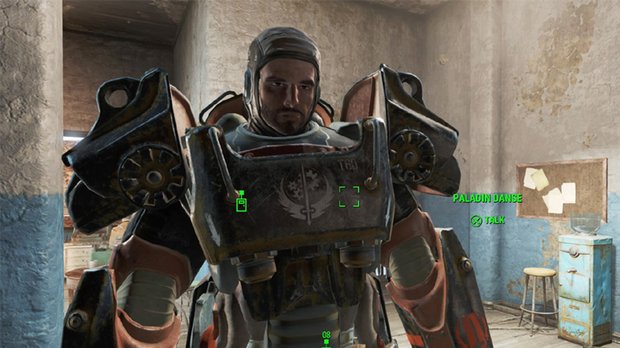
With amicable access to their base via an earlier side-quest - and Fallout's vagueness allowing this altercation to play out in isolation - he’s now going to focus his next few hours’ leveling on accruing the strength and perks he needs to duplicitously take them down from inside, or at the very least ransack their HQ in revenge. Or maybe he'll just anonymously litter their doorstep with mines and let things play out.
There you go. A full storyline, made of motivation, action and reaction. Two separate, resulting plotlines, each with a whole lot of scope for repercussion. None of it prescribed by the game, but all of it accommodated and serviced by Fallout 4’s resonant systems operating as GM. But the really exciting thing about being able to role-play in this way is that however many ‘main’ quests Fallout 4 has, however many side-quests and secrets I can colour with this kind of play, the game actually has potentially limitless content due to the amount of stories and adventures I can author myself.
I’m not writing off the less freeform, less simulation-driven RPGs of the world. I’m a very big fan of those too. They’re a different approach to role-playing, inviting me to put my thumbprint on someone else’s tale rather than offering to help me write mine, but they’re still great. Like reading a good novel, with added scope for personal involvement. Yeah, I’m back to the CYOA analogy, it seems. But when I want something meatier, when I want to really inhabit a world, rather than explore it with a tour guide, I’m heading not to the Citadel, or Novigrad, but braving the chaos and stomping straight out into the Commonwealth.



